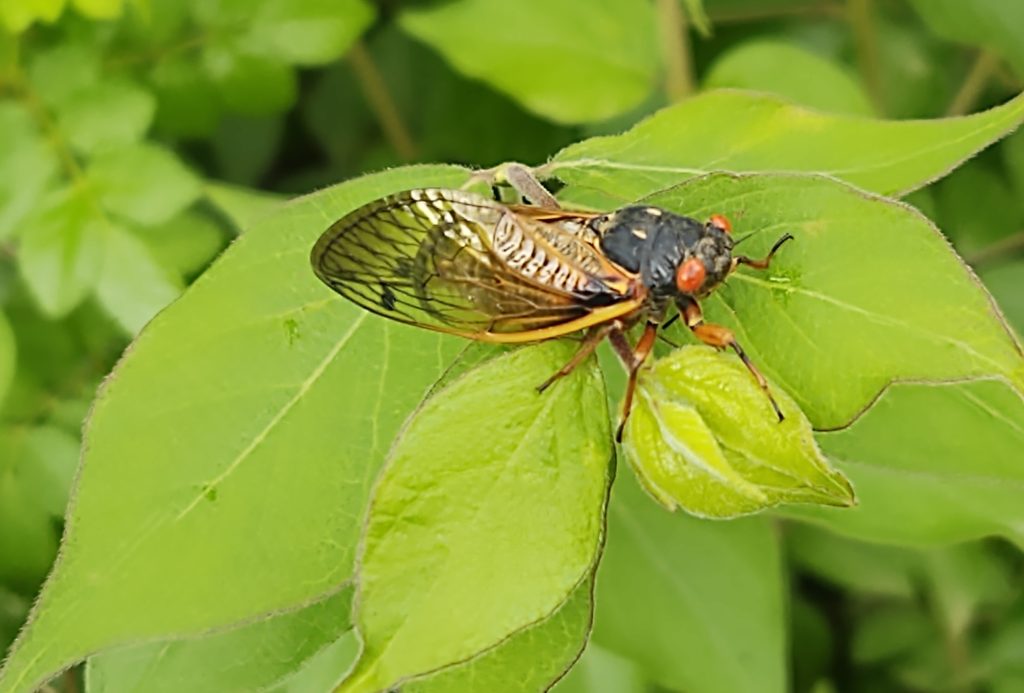Before going almost entirely online, Seventeen used to be one of the most popular magazines for young ladies. It had all the latest fashions as well as plenty of relationship advice. I doubt, though, that the title came from our friendly visitors that show up every seventeen years, even though they also make a fashion statement by changing clothes and illustrate valuable life lessons.
These locusts, more properly called cicadas, are quite interesting creatures. The cicada is the world’s longest living insect and, while it makes an annoying noise for a few weeks in late spring, it does very little damage to anything including the trees in which it deposits its eggs. Only the males buzz while the silent females are busy laying up to 600 eggs. Cicadas make a nutritious snack for many types of wildlife and the Indians ate them like popcorn. I think I’d need lots of butter!
What we see and hear, however, are the short-lived adult cicadas. For seventeen years, they dwell in the soil as larvae. At the end of this time, they emerge from the ground and crawl up the nearest tree trunk where their old exoskeletons split apart and the mature insects appear. The adults only live about three weeks, or less if there are Indians around. Once out of their shells, they fly from tree to tree in search of mates and egg sites, although many end up on the grills of our cars in the process.
What can this little critter teach us other than patience while we wait for death to mute them? First of all, they are a not-so-silent testimony to God’s amazing creative ability. Right on schedule, these little guys emerge in unison every seventeen years without an alarm clock and entertain us for no apparent reason other than to sing praise to their Creator. Their incredible design consisting of musical wings, flight ability, complex eyesight, internal time clocks, and untaught knowledge to crawl should be enough to convince even the staunchest atheist that they are no accidental product of random evolution.
Beyond this, however, these static makers can teach us about new life. The larval cicadas were bound very tightly within their hard shells for most of their lives down in the ground. They couldn’t fly, sing, or enter into relationships with others and they knew nothing of the beautiful sunshine and clouds awaiting them above.
In this lowly state the larval cicada is a good depiction of every human being without Jesus. We are bound in our sins unable to really sing, fly, relate well, or enjoy life. We are doomed to grovel in the dirt of worldly amusements finding them dark, empty and unsatisfying. Then, through the miracle of Christ’s sacrificial death, we can be set free from our binding sins and begin to fully live!
How sad that the cicada must wait until his existence is nearly over to emerge and enjoy life. The beautiful thing is that we humans don’t have to! We can do it at any moment. Whenever we acknowledge our real condition and accept Christ’s love and forgiveness, we can begin to truly live.
How about you? Do you feel like you were created for more? Are you still bound by sin unable to truly enjoy your life? In John 8:36, Jesus said, “If the Son sets you free, you will be free indeed.”
Whether you’re seventeen or seventy, I invite you to enjoy new life in Jesus’ freedom today. And then one day, you will shed your earthly skin and fly Heavenward to enjoy an even greater existence! But that’s another lesson.
Spring blessings, George
